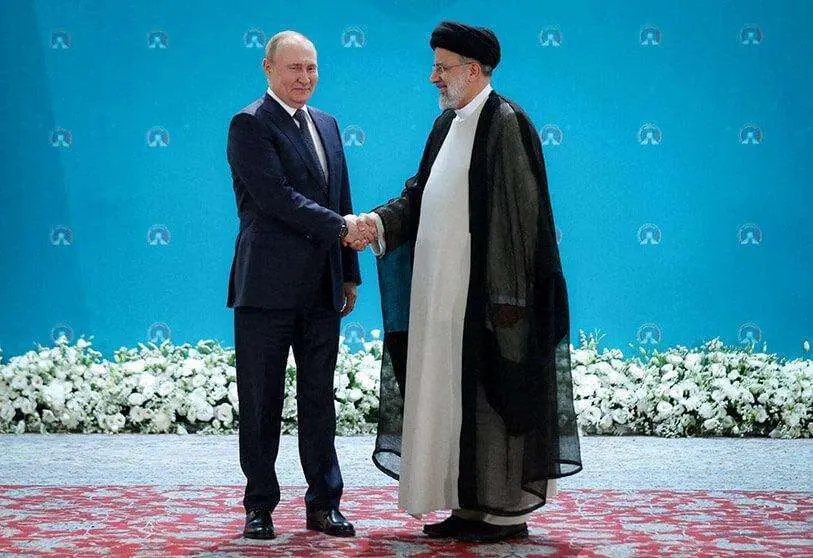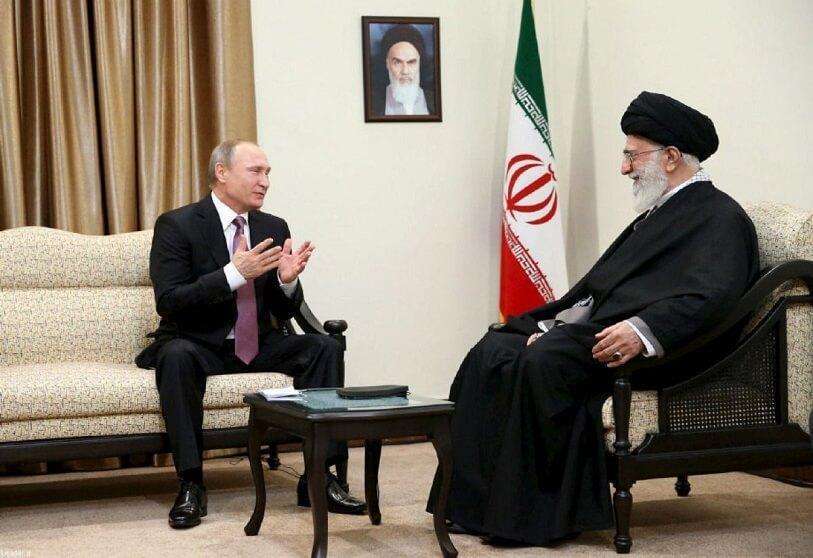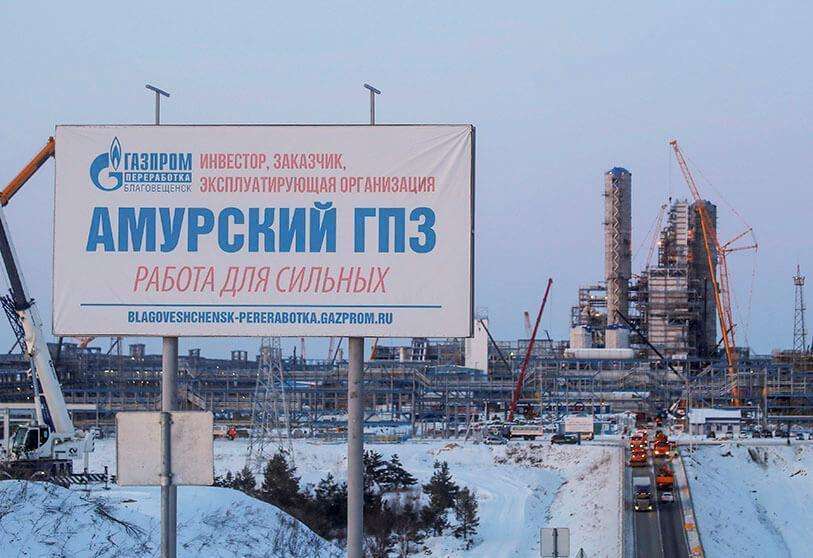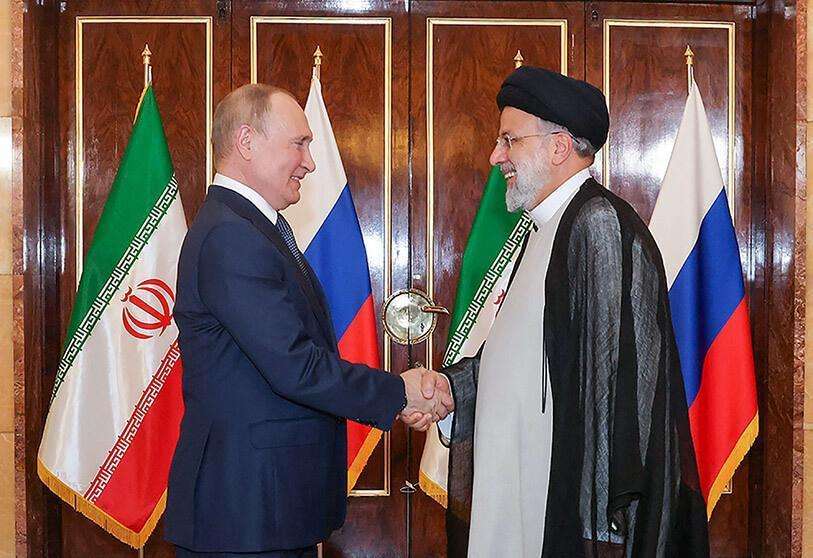The reasons that bring Iran and Russia closer on energy issues

The isolation that Europe is pushing Moscow into is forcing the Russians to look for new resources with which to continue developing their industry and take advantage of the exports that the European Union tries to avoid with each package of sanctions. In this context, Russia has seen Iran as one of the most attractive alternatives and has already set in motion all its machinery to strengthen the ties that bind Vladimir Putin's people to Tehran. In addition to the sale of Iranian military weapons, new moves are now being made in the energy sector.
Iran should not, at least on paper, be particularly interested in sitting down to negotiate gas imports with Russia. President Ebrahim Raisi's country has significant oil and gas reserves - some of the largest in the world, in fact - so why would Iran negotiate with the Kremlin over the purchase of new energy resources? The explanation is as simple as usual: an exploited asset can always be exploited further. Iran, although an exporter, wants to become more so, to improve its infrastructure and to be able to earn even more money from its resources.

And the context could not be more ideal for both, in the context of the sanctions to which both Russia and Iran are bound. Serbian writer and political analyst Nikola Mikovic explained to Al Arab that Tehran wants new gas pipelines to export its energy resources outside the country. The pipelines linking the country led by Ali Khamenei with Turkey and Iraq are not ready to carry large quantities. This is clearly reflected in the numbers. Total Iranian gas exports in 2021 stood at 17 billion cubic metres compared to Russia's 241 billion cubic metres in the same year.
Iran needs Russia's help to upgrade its infrastructure and Moscow needs new buyers in the face of EU sanctions. It was only a matter of time before a rapprochement took place, and although it is now intensifying, it took its first steps in July. In the summer of this year, Russian energy giant Gazprom signed a $40 billion deal with the National Iranian Oil Company. As part of this memorandum, Moscow pledges to help Iran develop Iran's Kish and North Pars gas fields, as well as six other oil fields.

The only thing that could stand in the way of this lucrative initiative is the EU-27 sanctions. However, the two countries see it as relatively easy to circumvent them and force the EU to rely on gas from the United Arab Emirates, Saudi Arabia and the United States. If so, the already foreseeable rise in gas prices would be even more severe than estimated, especially after the announcement of OPEC+'s announcement to cut oil production by two million barrels per day.
If this energy alliance between Russia and Iran already suggests that the benefits for both countries will be significant, it could leave Tehran in an even more advantageous situation. The Iranians have presented themselves to Europe as a new alternative for sending gas to the Old Continent. However, the proposal does not seem to have any kind of future as the sanctions imposed by the West against the Ayatollah regime make any agreement in this field impossible. And not only that. Precisely the aforementioned reduced Iranian infrastructure would make it very difficult to increase the level of exports, especially when the aim is to supply it to Europe, so that the attempt made no sense from the outset.

This could be understood a little more if one takes into account one of the alternatives that, according to some experts, Tehran could be considering to buy Russian gas, not only for domestic consumption, but also to sell it at a higher price. The Iranian Oil Ministry announced the purchase of 9 million cubic metres of Russian gas per day for its own consumption, to which should be added 6 million cubic metres destined for Turkey, Pakistan and Afghanistan, leaving a large profit in Iran's coffers.
This rapprochement between Iran and Russia is understood more as a consequence of the isolation to which both countries - especially Russia - are subjected by Western sanctions. It is this context that has led Moscow and Tehran to reach an agreement whereby, on the one hand, Russia will be able to sell its energy resources and also gain control over Iran's resources, and on the other, Ali Khamanei's forces are taking advantage of Russian isolation to obtain a good price for Soviet gas which, in turn, leaves a significant economic benefit as it passes through Iran's gas pipelines.








